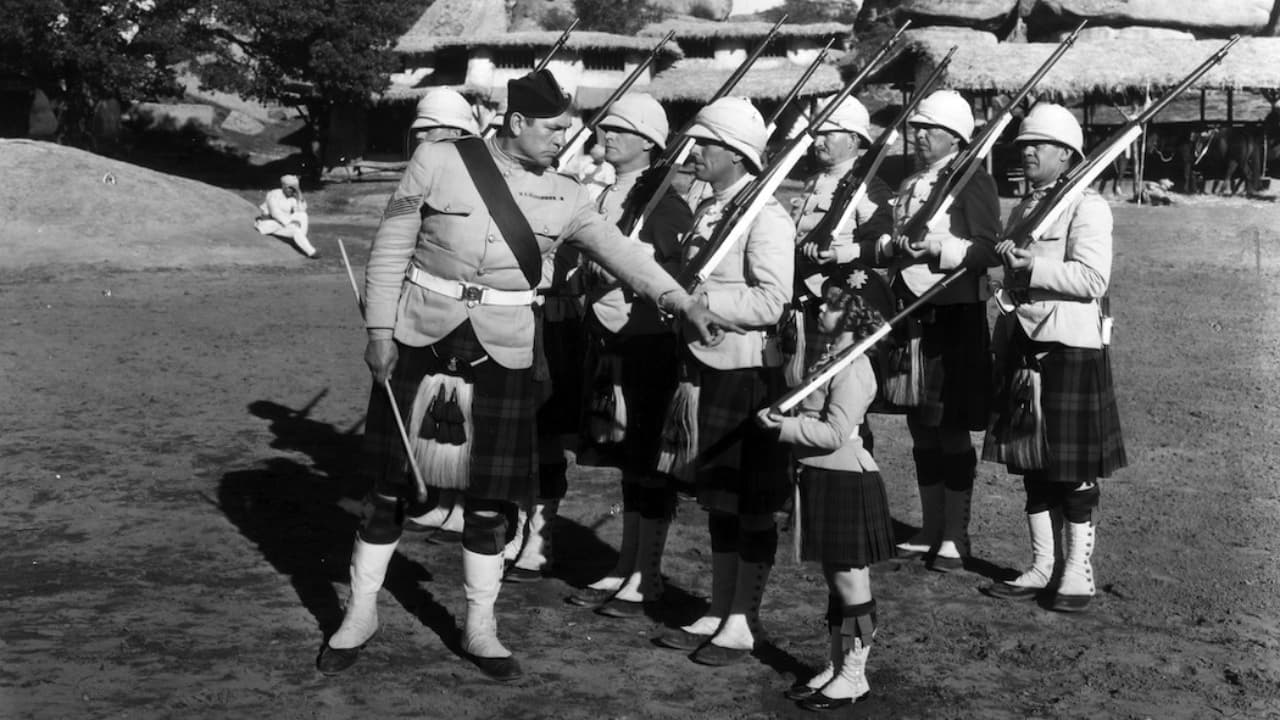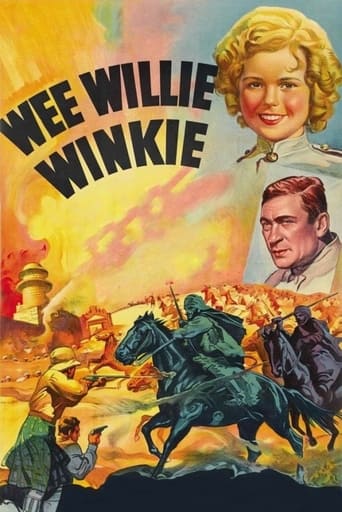

If the ambition is to provide two hours of instantly forgettable, popcorn-munching escapism, it succeeds.
... View MoreIt is both painfully honest and laugh-out-loud funny at the same time.
... View MoreThis movie feels like it was made purely to piss off people who want good shows
... View MoreGreat movie. Not sure what people expected but I found it highly entertaining.
... View MorePriscilla arrives with her mother at a British post in India where her grandfather is the commanding officer. On the same day, the Khoda Khan, the leader of the Muslims with whom the British are at war, is captured. A spy in the compound facilitates his escape. Later, the spy brings Priscilla to the hideout, which is impregnable against the British army owing to the narrow pass that must be crossed to reach it. The Khoda Khan is ecstatic. He realizes that the colonel will bring the entire regiment to try to rescue his granddaughter, and the British soldiers will be slaughtered to a man. It is the chance he has been waiting for.So he has two of his men throw the spy over a cliff.I guess the idea is that they did not need him anymore, and besides, his personality was a little irritating. This begs the question as to why anyone would be loyal to such a leader (it would certainly occur to me that one day I might get old and not be of much use anymore, and then the Khoda Khan would have me thrown over a cliff). Of course, the real point is to show that these people are cruel and ruthless, and therefore deserve to be ruled by the British, which in the end they are.
... View MoreShirley Temple and mother are traveling to India to see grandfather in this John Ford movie based on a Rudyard Kipling tale. In fact, in most of the Shirley Temple movies, she is the main focus of the film. Here, she is one of many, due to the exceptional talent that went into the making of this film. There's director John Ford's touch that usually makes gold. There's Victor McLaglen, one of John Ford's more frequent actors. There's the colorful and versatile Cesar Romero as a supposed villain here, who also costarred in "The Little Princess." And lastly, there's the locale of India, which seems to be the real star of this film. The mood, the shadows, the direction of Ford all tell a story besides the actual plot and dialogue. McLaglen is a stern officer, but then he meets and befriends Shirley. And, Shirley get embroiled into the war between the natives and the officers, when they think she has been kidnapped. The end result may be somewhat predictable, but the journey is a very different one than most Temple films. Although she is the title character, she just happened to be cast in this John Ford production. And, what a production! Along with "The Little Princess," this has to be one of the best films she ever made. I wanted to watch this over, once I finished it. A true testament to a great film!
... View MorePriscilla Williams (Shirley Temple) and her mother go to British-controlled India to reside with Colonel Williams, Priscilla's grandfather. Mother has been left a widow upon the death of her husband and this is the only option. Mrs. Williams doesn't really like the change, but wee Priscilla is enchanted by her new environment. This, in spite of the fact that the Colonel has no idea how to deal with little girls and comes off quite gruff. As can be predicted, she soon melts his heart. In addition, since the grandpapa only knows military life, Priscilla aspires to be a "little soldier". Thus, a tiny replica of the army's uniform is made for her, with the helmet-hat that everyone wears to prevent sun stroke. She is coached in military ways by Sergeant MacDuff (Victor MacLachlan) who also adores the tiny gal. It is he who gives her the name Wee Willie Winkie, since soldiers are rarely called Priscilla. One day, at the market, she sees that a religious token has been dropped outside a window and, picking it up, she gives it back to the owner through iron bars. Yes, he, Kodha Khan (Cesar Romero) is a prisoner. He is so grateful to her and strikes up a friendship. But, alas, he also has plans for a prison break out. A friend uses Winkie to deliver a letter that will "bring peace" to the Khan's heart. If you guessed it writes of "spring me plans", you are correct. Tensions, you see, are high between these Muslim Indians and the British. The breakout takes place. Meanwhile, something happens to MacDuff that changes everything. Soon, Winkie is on her way to make peace with Khan and save the regiment from disaster. Can a small child diffuse a dangerous situation? You bet, when its our Shirley! I count myself, easily, as a gigantic Shirley fan from childhood on and this one was, and remains, a favorite. The story, based on a Kipling work, is unique and beautiful, promoting peace at every turn. Also, the India setting has great charms for those who will never visit the country while the cast is terrific. MacLachlan's performance is so touching, tears will fall from everyone at a critical moment while Romero does nice work, too. The supporting cast is fine as well but, as always, Temple puts on a show well beyond her tender years. Are you just discovering the movies of one of America's treasured child stars? Don't miss this one!
... View MoreI've seen "Wee Willie Winkie" dozens of times and it's always fresh and interesting. Shirley doesn't dance and only sings a little. John Ford directs in his straight ahead "cavalry" mode, with the usual hearty horseplay, humor and heroics. There's a touch of tragedy when gruff Sgt MacDuff dies. The Sarge is played perfectly by the great Victor McLaglen, who made a career of playing tough, but lovable sergeants (see John Ford's cavalry trilogy with John Wayne), is terrific holding his own with the angelic Shirley. Incidentally, they also appeared in Ford's great "Fort Apache". The film is based on a Rudyard Kipling adventure, but Wee Willie is a boy in the written story, of course, the role becomes a girl's for her. The story takes place in Northwest India, where Shirley and her widowed mother arrive at the British outpost to stay with the colonel, who's Priscilla's grandfather. The colonel, portrayed by C Aubrey Smith is of course, the universal ramrod straight arrow who is befuddled by his granddaughter. Sgt MacDuff takes a liking to Priscilla and renames her Pvt Wee Willie Winkee. He lets her participate in drills, but he gets in trouble for it. He gets her a uniform and carves a miniature rifle. Kodha Khan, a rebel chieftain is captured and held in the fort's jail, but his tribesmen spring him during a dance held by the British officers. A patrol led by Priscilla's mother's beau, Capt "Koppy" is ambushed and Sgt MacDuff is badly wounded. He dies and Priscilla sings a heart rending "Auld Lang Syne". After the sergeant's funeral, Wee Willie goes with the treacherous Muhammad Dihn to talk to Khan in an effort to avert war. The regiment moves out to get her back safely. Priscilla charms Khan, who is well played by Cesar Romero, and he agrees to meet with the colonel. Shirley does it again, war is averted and the family is reunited. This is done in such a great manner that Shirley's cuteness doesn't overwhelm the picture. By the way, the colorized version features some really odd hues that don't seem natural. Altogether it has great acting, superior directing and a solid plot.
... View More